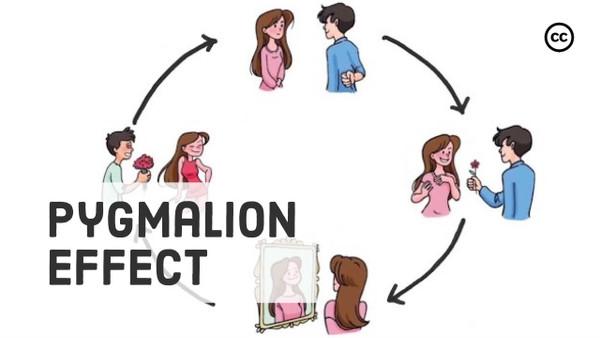The Pygmalion Effect
Curated from: Sprouts
Ideas, facts & insights covering these topics:
3 ideas
·1.11K reads
14
1
Explore the World's Best Ideas
Join today and uncover 100+ curated journeys from 50+ topics. Unlock access to our mobile app with extensive features.
Increased performance when it is expected
The Pygmalion effect is where higher expectations lead to higher performance.
Our beliefs about another person's abilities affect our actions towards that person. The action impacts the other's beliefs about themselves and causes the action of the other person toward us, which further reinforce our beliefs about that person.
35
464 reads
The Rosenthal experiment
The Pygmalion effect is also known as the Rosenthal experiment, named after research of Robert Rosenthal at Harvard.
In a test, Rosenthal challenged test subjects to coach rats through a maze. Half were told that the rats were very intelligent, the other half were told that their rats were dumb. The rats were all the same.
During an experiment, the "clever" rats outperformed the "dumb" rats.
30
343 reads
The experiment at a school
Rosenthal did the Pygmalion study in a school.
At the start of the school year, a group of elementary school teachers were told that their new pupils were very talented, while they were really random average students.
By the end of the year, the students that were described as more talented had significantly increased their performance compared to the rest of the class.
Rosenthal concluded that when "we expect certain behaviours of others we are likely to act in ways that make the expected behaviour more likely to occur."
30
306 reads
IDEAS CURATED BY
CURATOR'S NOTE
The Pygmalion Effect = high expectations lead to improved performance.
“
Jack 's ideas are part of this journey:
Learn more about personaldevelopment with this collection
How to make rational decisions
The role of biases in decision-making
The impact of social norms on decision-making
Related collections
Similar ideas
3 ideas
Reggio Emilia Education
Sprouts
Read & Learn
20x Faster
without
deepstash
with
deepstash
with
deepstash
Personalized microlearning
—
100+ Learning Journeys
—
Access to 200,000+ ideas
—
Access to the mobile app
—
Unlimited idea saving
—
—
Unlimited history
—
—
Unlimited listening to ideas
—
—
Downloading & offline access
—
—
Supercharge your mind with one idea per day
Enter your email and spend 1 minute every day to learn something new.
I agree to receive email updates


